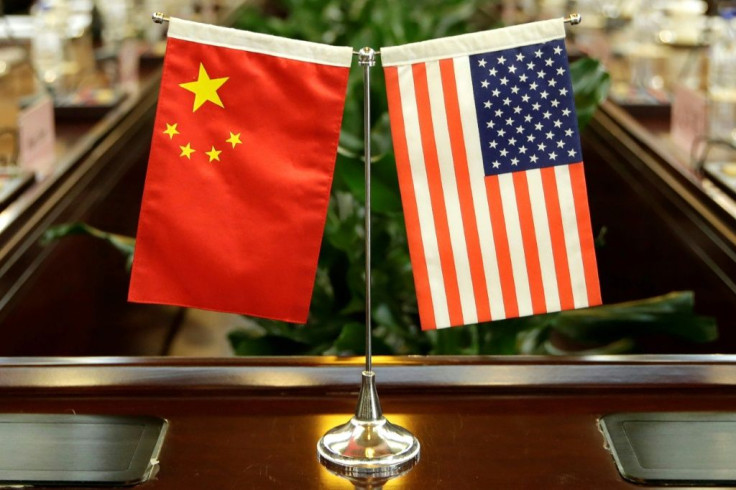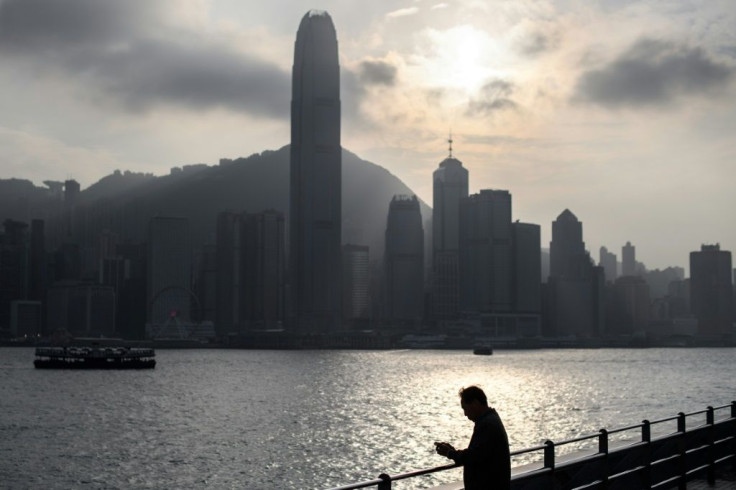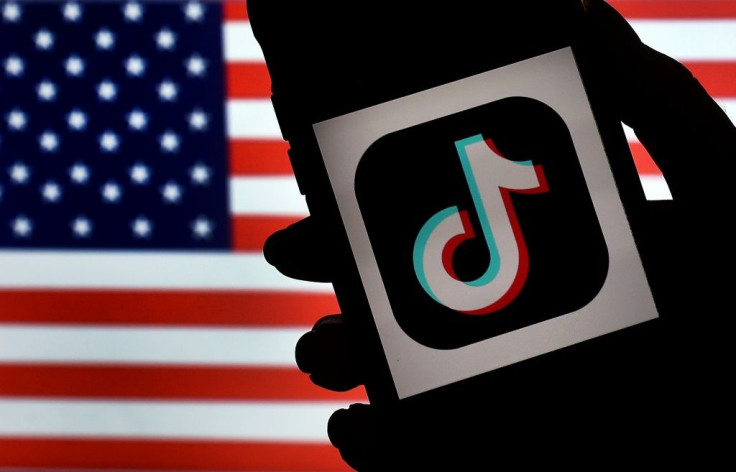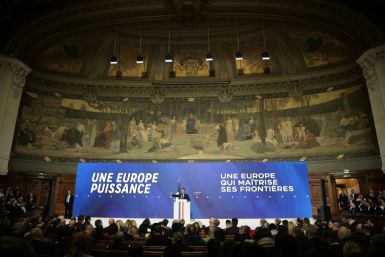A Long List Of US-China Disputes
Tensions between the United States and China have been rising over a range of issues from the handling of the coronavirus to national security, Hong Kong and trade.
Washington ordered the closure of the Chinese consulate in Houston last month -- accusing it of being a centre for spies -- and China hit back by shutting the US consulate in Chengdu.
Here are the main points of contention:
Washington and Beijing have been engaged in a war of words over who is to blame for the novel coronavirus since Trump described it as a "Chinese" illness in March.
Beijing's foreign ministry spokesman Zhao Lijian retorted by suggesting the US army might have brought the virus to Wuhan, the central Chinese city where it first emerged late last year.
The two superpowers then cracked down on each other's news outlets.

In May the foreign ministry hit out at American errors in handling the pandemic while Trump fired back by saying it was the "incompetence of China and nothing else that did this mass worldwide killing".
The US Federal Bureau of Investigation (FBI) in May warned healthcare and scientific researchers that Chinese-backed hackers were attempting to steal research and intellectual property related to treatments and vaccines for COVID-19.
On July 21, two Chinese nationals were indicted in the US for allegedly hacking hundreds of companies worldwide, prompting Beijing to accuse the US of "slander".
Washington reacted to China's imposition of a sweeping new national security law on Hong Kong by ending preferential trade treatment for the former British colony.

It also restricted visas for Chinese officials seen as infringing on the city's autonomy, and stopped the export of sensitive technologies.
China pressed ahead with the law in late June.
On Taiwan, the US on Wednesday announced its highest-level visit to the self-ruled island since Washington switched diplomatic recognition to China in 1979.
Health chief Alex Azar will be the first American cabinet minister to visit in six years -- a trip that China urged be cancelled.
The US in July froze assets and imposed visa bans on several officials in China's northwestern region of Xinjiang over rights abuses against its Turkic speaking minority.
Washington accused the group of "horrific and systematic abuses" in Xinjiang including forced labour, mass detention and involuntary population control.

It then put 11 Chinese companies suspected of taking part in persecution on a blacklist, limiting their access to American technologies and products.
The US says more than one million ethnic Uighurs and other Turkic-speaking minorities have been rounded up into a network of internment camps.
China contends that the facilities are vocational education centres.
Weary of its hefty trade deficit with China, Washington declared a trade war in March 2018. It quickly escalated with tit-for-tat punitive duties on hundreds of billions of dollars of bilateral trade.
After truces and resumptions of hostilities, the two superpowers in January 2020 signed an initial accord under which China agreed to buy an extra $200 billion of US imports over two years.
But in July, Trump said he did not plan to proceed to the second phase of the accord as relations with China had been seriously damaged.
The US has accused Chinese telecoms giant Huawei of spying for Beijing and of rights abuses by allowing China to carry out surveillance of dissidents. It is also accused of installing large-scale surveillance technologies in Xinjiang and not respecting an embargo on Iran.
Trump's administration has stepped up sanctions against the worldwide leader in 5G and has pressured allies such as Britain to shun the group.
The UK in July ordered the phased removal of Huawei from its 5G network.
In August, Trump also ramped up pressure on the US operations of popular video app TikTok -- whose parent ByteDance is a Chinese company -- laying down a six-week deadline for the firm to be sold to an American enterprise or be banned.
On July 2, the US Department of Defense criticised Chinese military exercises around the Paracel Islands in the South China Sea, in an area claimed by China, Taiwan and Vietnam.
Two days later, the Pentagon said two of its aircraft carriers had carried out drills in the sea to "support a free and open Indo-Pacific".
Beijing has since said it recently conducted "high-intensity" naval exercises in the region.
Trump's administration has demanded China take part in discussions on a successor to the New START treaty, which caps the nuclear warheads of the United States and Russia.






